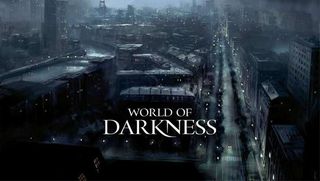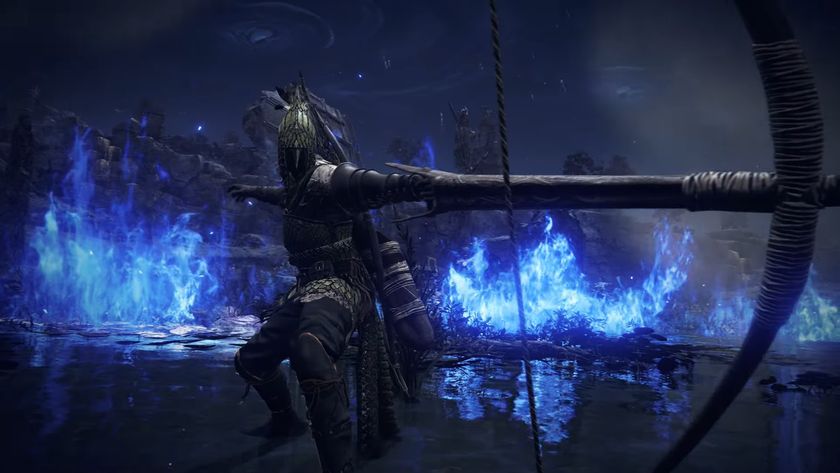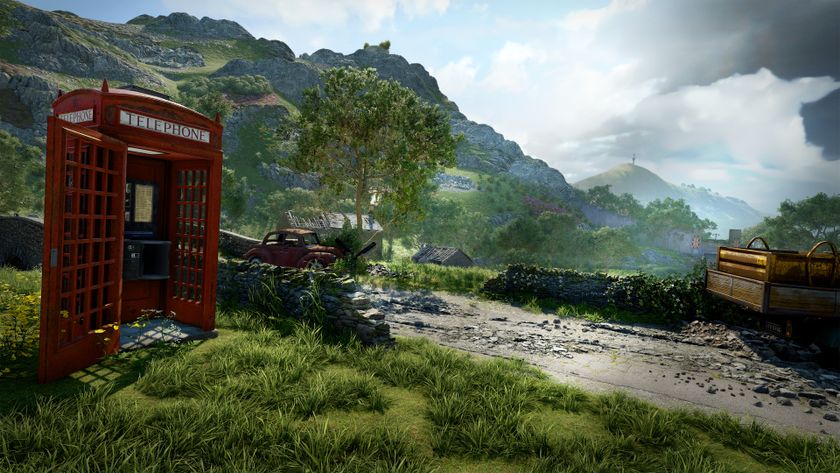CCP cancels World of Darkness. Was it stretched too thin?
EVE developer CCP has just delivered a stinging two-hit combo of bad news. First up, it’s cancelled its very promising but entirely unseen MMO set in White Wolf’s World of Darkness universe, apologising for "falling regrettably short" of delivering "the experience that we aspired to make". At the same time, it has laid off 56 members of the Atlanta-based team developing the game.
Obviously this is sad news all round. The game had a vast amount of potential, given the richness of the world it was to inhabit, not to mention CCP’s long-standing prowess in the creation of thriving, organic virtual worlds. And of course that loss pales in comparison to another bout of lost jobs, an occurrence this industry has suffered all too frequently over the last few years.

It’s perhaps slightly surprising for this fate to befall a company like CCP. While many studios have suffered at the hands of their reliance upon the whims and budgets of big-name publishers during a period of exploding development costs, CCP has always seemed--much like Valve--to be a large but self-sustaining company, shielded from trouble by its ability to self-publish to a huge and highly dedicated fanbase. In fact, while looking into the background of this calamity, I discovered an interesting, and in hindsight highly ironic, statement from CCPA North America’s president Mike Tinney, expressing exactly that sentiment 5 years ago:
“While all these other companies are doing layoffs and scaling back, because we're pretty self-contained--we're not a developer beholden to a publisher; we're not a publisher waiting for a developer. We self-publish EVE Online and support it in its entirety, so we have a lot more ability to react as the world economy shifts, and that's allowed us to retool focus on the core drivers for our business, and steadily grow while a lot of other companies are shrinking”.
Solid, rather healthy thinking. So does that mean that today’s news marks a failure of that philosophy? It’s impossible to know for sure, but I think it’s entirely possible. World of Darkness was under development not in the core CCP bunker in Rekjavik, but at its satellite studio in Atlanta. That studio has suffered lay-offs before, in 2011 when CCP announced that it had made a mistake with the development of EVE’s much-vaunted Incarna update (which was to allow players to leave their ships and explore space stations on foot), and was to refocus on the core EVE experience at the expense of the update and World of Darkness. It seems that perhaps the American branch of the company and its game have been a lower priority and potential financial safety valve for a while.

If that’s true, then it rather looks like, over recent years, CCP might have over-stretched itself, despite its noble aspirations to the contrary. World of Darkness had been in development for a mammoth 8 years when it was cancelled. That’s a giant investment for a project with long-term lack of return. What’s more, the intended final result, a big budget, sandbox MMO, would have been part of a notoriously tricky genre. Even the mighty EA has had trouble making one work in conjunction with the even mightier Star Wars license. And don’t forget Square-Enix’s problems with Final Fantasy XIV. Right now it’s impossible to say how even The Elder Scroll Online will fare, long-term.
The ironic part is that CCP has always had a bona fide phenomenon in its camp, in the shape of EVE. The space-based MMO has been a vast, unique, and fiercely loved money-spinner for many years, and it’s telling that the company’s immediate tactic in the face of past troubles has always been to refocus upon it. Even attempts to expand upon that game’s universe via the misfiring PS3 FPS Dust 514--which Atlanta staff were reassigned to--have resulted in more wilting garnish than genuine, vital expansion.
Sign up to the 12DOVE Newsletter
Weekly digests, tales from the communities you love, and more
Of course, ambition is good, especially when it comes from a company as intelligent and talented as CCP. But perhaps this sad incident is indicative of an important truth for the games industry at large, stumbling as it often currently is under the weight of costs and expectation. While talent and success are bound to breed the desire to achieve more, sometimes slow and steady wins the race, particularly when there’s great work still to do with existing successes.












